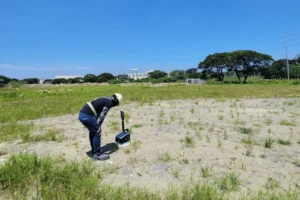Understanding the Growing Demand for Filipino Workers Overseas
Filipinos have earned a strong reputation as reliable, hardworking, and adaptable employees across the globe. From healthcare to engineering, their skills continue to be sought after by many international employers. Countries across Asia, the Middle East, Europe, and North America consistently look for Filipino talent because of their technical expertise and ability to work in diverse environments. The growth of Filipino jobs abroad has been driven not only by skill but also by the strong cultural values that emphasize dedication, family, and resilience. Employers abroad often highlight the professionalism, hospitality, and English communication skills of Filipino workers. With globalization expanding job markets, the demand for overseas Filipino workers (OFWs) has only increased. This trend continues to open more opportunities for Filipinos to showcase their expertise on a global stage.
Key Sectors Offering Filipino Jobs Abroad
The international job market for Filipinos is diverse, with several industries actively hiring workers from the Philippines. Healthcare is one of the most prominent sectors, with nurses, caregivers, and medical technicians in demand across North America, Europe, and the Middle East. Engineering and construction industries seek Filipino civil engineers, welders, and skilled laborers to support infrastructure projects. The hospitality and tourism sector also presents wide opportunities, especially for hotel staff, chefs, and cruise ship workers. In the digital economy, Filipino IT specialists, virtual assistants, and software developers are proving competitive, especially in countries that embrace remote work. Household services remain vital, particularly in the Middle East and Asian countries where domestic helpers and caregivers are highly valued. By diversifying skills across these industries, Filipinos are finding more pathways to achieve their career goals abroad.
Top Destinations for Filipino Jobs Abroad
Filipinos migrate to various regions depending on labor demand and career prospects. The Middle East remains a top choice, with Saudi Arabia, the UAE, and Qatar continuously offering jobs in healthcare, construction, and household services. In Asia-Pacific, Japan, Singapore, and Hong Kong attract Filipinos for roles in caregiving, domestic work, and hospitality. North America, particularly the United States and Canada, continues to need Filipino healthcare professionals and skilled workers in IT and engineering. Europe has also become more open to Filipino workers, especially in the United Kingdom and Germany, which have expanded recruitment for nurses and technical staff. Australia and New Zealand are emerging markets offering opportunities in agriculture, construction, and skilled trades. Each country presents unique benefits, and Filipinos carefully consider factors like salary, benefits, and working conditions when choosing a destination.
How Filipinos Can Secure Jobs Abroad Safely and Legally
Securing a career overseas requires careful planning and adherence to legal processes. The Philippine Overseas Employment Administration (POEA), now integrated into the Department of Migrant Workers (DMW), plays a critical role in regulating recruitment. Filipinos should always verify that an agency is accredited before applying for any overseas work. Common requirements often include passports, work visas, professional certifications, and language proficiency exams, depending on the country. To avoid exploitation, jobseekers must be cautious of offers that seem too good to be true or those requiring large upfront fees. A simple step like checking job postings on the official POEA website can save applicants from scams. It is also advisable to attend pre-departure orientation seminars that prepare Filipinos for their responsibilities abroad. By following legal steps, workers not only secure their rights but also ensure safer employment experiences.
Benefits of Working Abroad for Filipinos
For many, the decision to work abroad is motivated by the promise of better financial and professional opportunities. Overseas salaries are often significantly higher compared to local job offers, allowing workers to provide a more stable life for their families. Beyond income, Filipino workers abroad gain access to training and skill development programs that raise their professional value. Exposure to global standards improves their knowledge and widens their career paths. Many Filipinos also appreciate the cultural diversity they experience while working in different parts of the world. For families back home, the financial support through remittances helps improve education, housing, and overall quality of life. These advantages highlight why Filipino jobs abroad remain highly desirable despite the challenges.
Key advantages include:
- Higher income potential compared to local opportunities
- Global exposure and career development
- Opportunities for skill enhancement and certifications
- Financial support for family back home
- Greater cultural awareness and adaptability
Challenges Faced by Filipinos Working Overseas
Despite the benefits, Filipinos working abroad face challenges that require resilience and adaptability. Homesickness is one of the most common struggles, as many workers live far from their families for years. Cultural adjustment and language barriers can also affect their daily interactions and work performance. Employment contract issues sometimes arise, including cases of unfair wages, excessive working hours, or misunderstandings about job descriptions. Some industries pose risks of exploitation, especially for domestic helpers who may experience abuse. Even when salaries are higher, poor financial management can lead to limited savings, defeating the purpose of working overseas. These difficulties highlight the importance of proper preparation, awareness of rights, and maintaining a strong support system while abroad.
Preparing for a Career Abroad as a Filipino
Before leaving the country, jobseekers must prepare themselves both professionally and personally. Acquiring globally recognized certifications is a major advantage, particularly in healthcare, engineering, and IT. Learning foreign languages such as Japanese, German, or Arabic can significantly improve employability in target countries. Filipinos are also encouraged to undergo intercultural training to ease adaptation to new environments. Financial preparation is another key factor, as initial costs for travel, documentation, and settlement can be substantial. Setting realistic expectations about workload and lifestyle abroad helps reduce culture shock. Emotional readiness is equally important, as long periods of separation from loved ones require strong mental resilience. With proper preparation, Filipinos can maximize the opportunities of working abroad while minimizing potential setbacks.
Future Outlook of Filipino Jobs Abroad
The global demand for Filipino workers continues to evolve with changes in technology and international labor trends. Healthcare will remain a strong industry due to aging populations in developed countries. However, new sectors are also emerging. Green energy and sustainability-related jobs are opening opportunities for skilled workers in engineering and environmental fields. The rise of digital freelancing and remote work platforms has expanded opportunities for Filipinos to earn globally recognized income without leaving the country. Government policies and bilateral labor agreements will continue to influence the flow of Filipino jobs abroad, ensuring fair labor standards. As more countries recognize the value of Filipino talent, the outlook for international employment remains positive. These shifts suggest that Filipinos will play an even bigger role in the global workforce in the years ahead.
Frequently Asked Questions (FAQ)
What are the most in-demand Filipino jobs abroad today?
Nurses, caregivers, construction workers, engineers, domestic helpers, and IT specialists are among the most sought-after professions worldwide.
How can Filipinos avoid illegal recruiters?
Always apply through POEA-accredited agencies, check job postings on official government websites, and avoid recruiters asking for large upfront payments.
Do overseas jobs guarantee higher salaries than local jobs?
Yes, salaries abroad are generally higher, but costs of living and personal financial management play a big role in how much savings workers can keep.
Which country offers the best benefits for Filipino workers?
Canada, Germany, and the UAE are known for competitive salaries and worker protection, but the best country depends on the worker’s skills and career goals.
How long does the process take to apply for a job abroad?
Processing can take several months depending on the job, country requirements, and availability of necessary documents such as visas and certifications.
Takeaway
Filipino jobs abroad continue to shape the lives of millions of families and contribute significantly to the Philippine economy. From healthcare to digital services, opportunities remain abundant for those who prepare wisely and follow legal pathways. While challenges exist, the benefits of global exposure, financial stability, and professional growth outweigh the difficulties. For aspiring overseas workers, the journey begins with equipping themselves with the right skills, securing legitimate job offers, and maintaining resilience while adapting to new cultures. With the right mindset and preparation, Filipinos can continue thriving as valued members of the international workforce.







